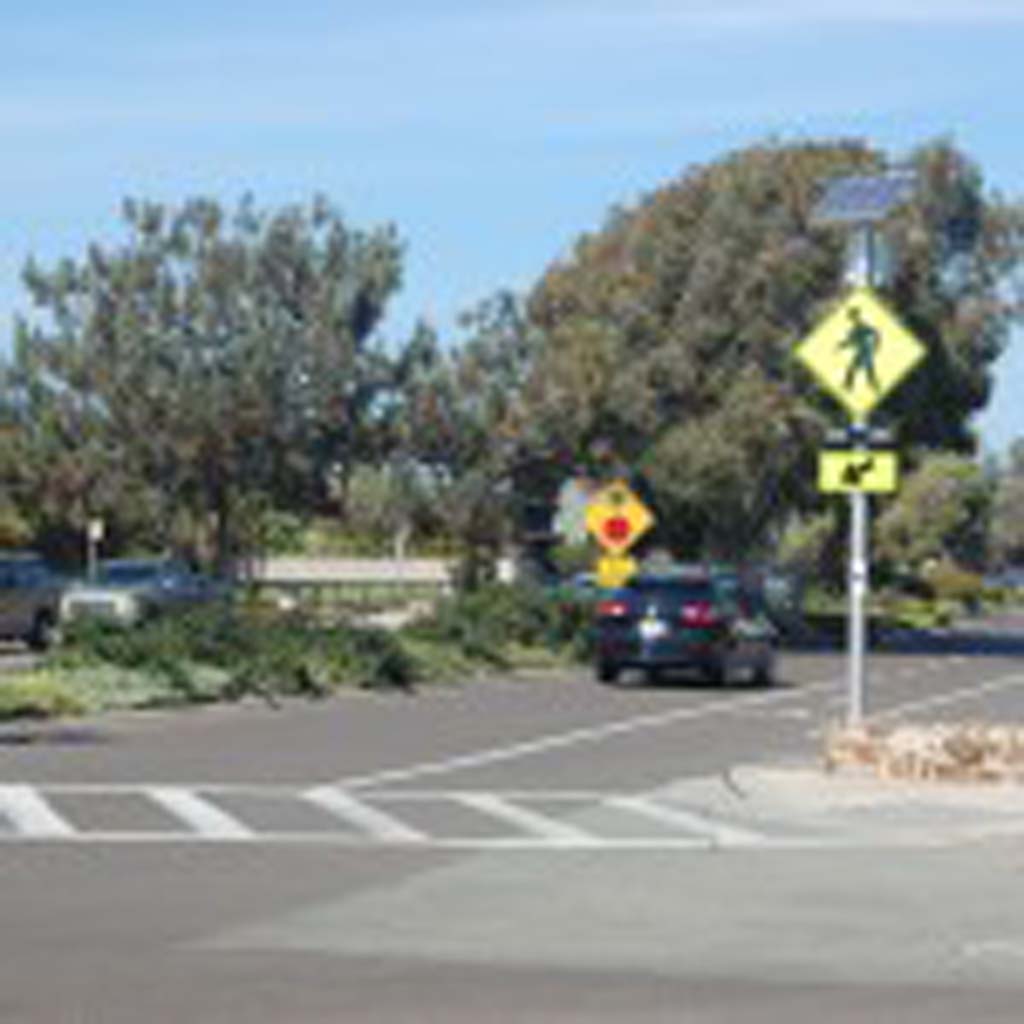ESCONDIDO—At Wednesday night’s City Council meeting, Mayor Sam Abed warned the packed chambers “the nation’s eyes are upon us.”
Hundreds of people filled the room to influence the Council’s decision on an appeal from the American Civil Liberties Union (ACLU) about the Planning Commission’s decision to deny the granting of a Conditional Use Permit (CUP) towards the conversion of a former nursing home into a 96-bed temporary shelter for unaccompanied minors crossing the border illegally.
The council voted to deny the appeal of the Planning Commission’s decision to deny changes to the CUP, with all in favor but Deputy Mayor Olga Diaz.
During her comments, Diaz ticked off the reasons she believed why the shelter fell within the current CUP saying that a lot of people who were against it cited unfounded reasons, including disease and over crowding of schools.
“None of these are factors to be considered as part of the land use issue,” Diaz said.
She went on to say that most of the children the shelter would house temporarily are from South America and “escaping travesties that none of us would ever want to live through and certainly wouldn’t wish on our children or anybody else’s.”
Diaz voted to appeal the decision to deny the shelter, admitting that she may lose votes in the upcoming election.
“I may lose an election but I will not lose my humanity,” Diaz said.
All of the other council members said they believed the shelter would violate the current land use permitting.
Councilman John Masson said the shelter is already creating special problems as evidenced by the city council meeting, which violates the CUP conditions.
Abed denied the appeal because of the land use issue and because he said the children are already cared for by the federal government.
“These children are under the federal government’s custody but the administration is pushing this issue to the local government with no solution in sight,” Abed said.
He went on to say the facility should be used for local children or seniors.
Nearly 100 people spoke to the council during the meeting, which was heated at times.
Signs dotted the divided crowds, both in favor of the shelter, “They are just kids!” and “It’s time to stop the racism,” and against, “Quarantine all who enter USA” and “America First.”
David Loy, legal director of the ACLU of San Diego & Imperial Counties, urged the council to appeal the decision.
According to Loy, the shelter would have added $8 million a year to the local economy in new jobs.
He said risky individuals would not pass through the shelter and officials from the Center of Disease Control (CDC) approved the facility because all of the kids are vaccinated in their home country or upon arrival.
Some Escondido residents who opposed the shelter scoffed at the CDC citing it’s recent handling of Ebola.
The shelter would have temporarily housed children ages 6 to 17 years old while they waited to be reunited with family members, which Loy said, generally took about 30 days.
Loy went on to say the shelter posed no credible risk to the surrounding neighbor’s property value but many within walking distance still spoke out against it.
Joshua Bleisath, a resident on Scenic Drive, said he was worried about his two-year-old daughter because the proposed shelter is a 70 second run from his front door.
“I don’t want 17 year old boys, possibly 96 of them, three doors down,” Bleisath told the council.
The majority of people who spoke were against the shelter because of traffic and they felt the former nursing home wasn’t meant to house children.
Those who spoke in favor cited the $8 million it would add to the local economy and that officials should open their hearts.
Loy represents Southwest Key, which was funded by the United States Department of Health and Human Services.
The proposed shelter will not pass through the Council again, however, Southwest Key can still pursue a lawsuit against the city.


